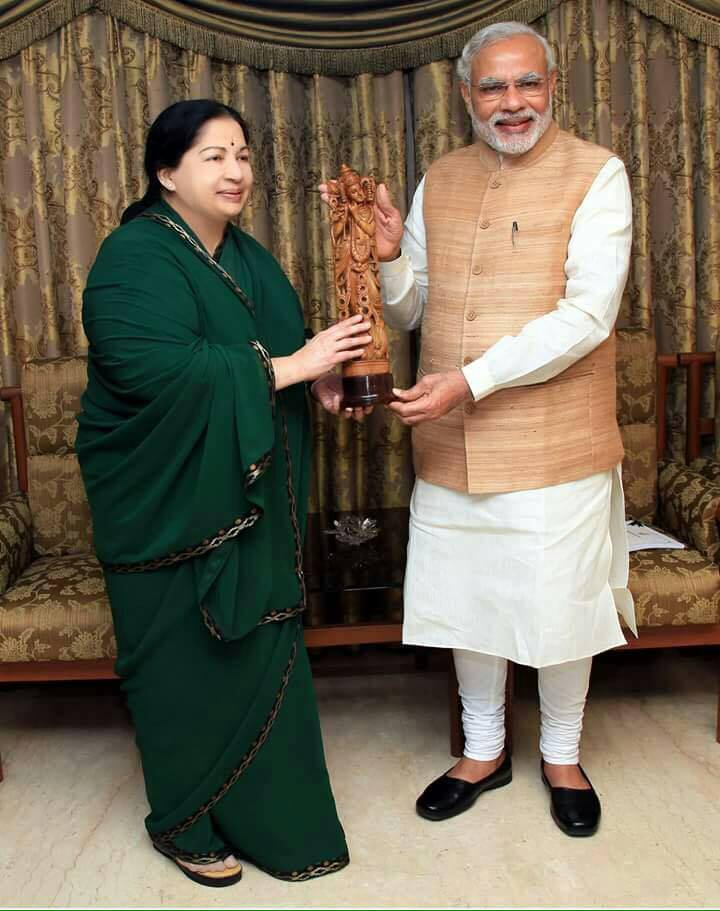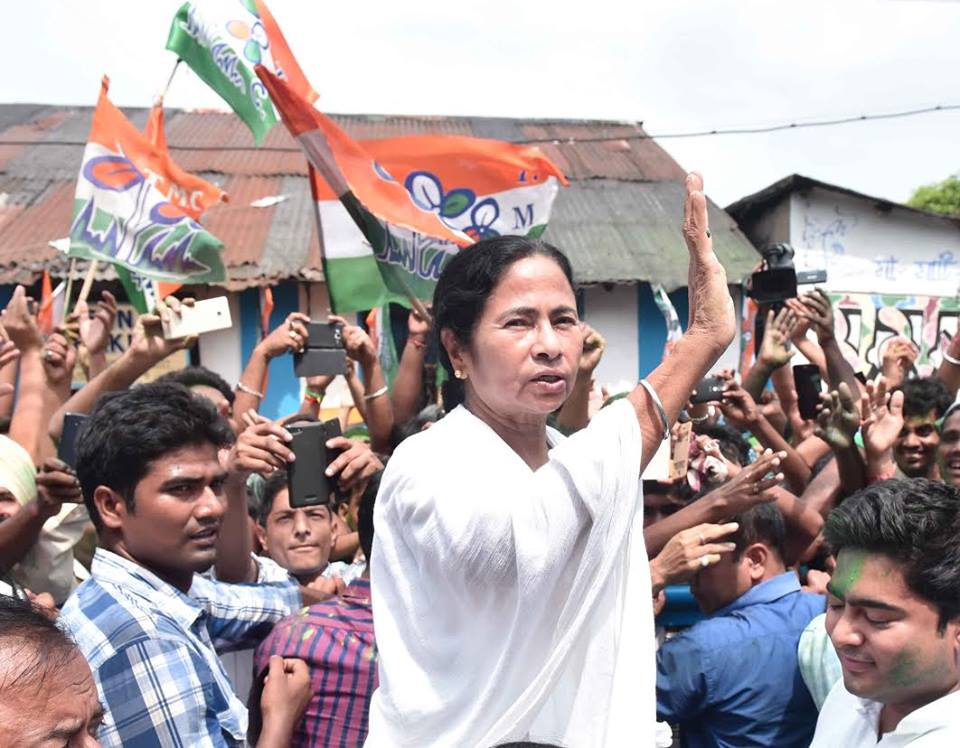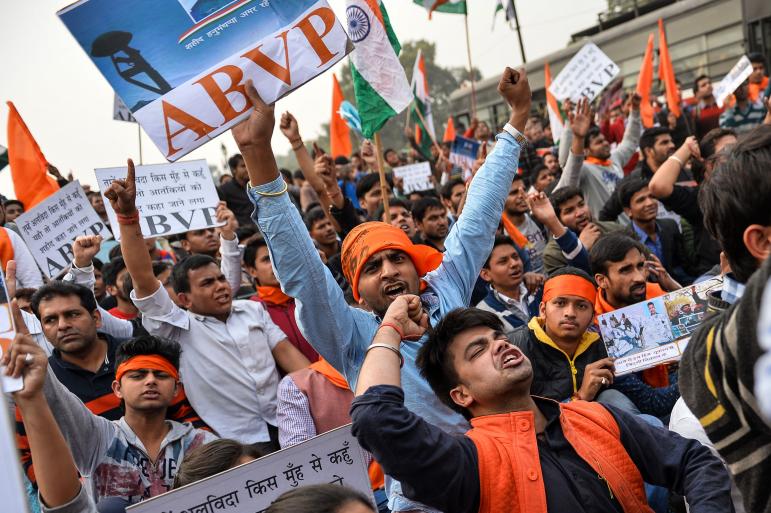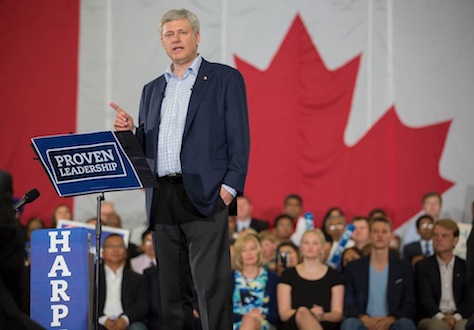
For the better part of a week, exit polls showed that Tamil Nadu’s chief minister Jayalalithaa, both beloved and scandal-plagued, was in trouble of being rejected by voters. ![]()
But when election officials announced the results Thursday for the May 16 state elections, her governing AIADMK (All India Anna Dravida Munnetra Kazhagam) instead won a resounding victory. It proved the staying power of one of India’s most enchanting regional leaders, despite her temporary, nine-month suspension as chief minister that followed a 2014 a conviction on corruption charges, and despite disastrous flooding late in 2015 that affected the Tamil capital of Chennai and that killed over 400 people throughout the state.
None of those problems seemed to matter to Tamil voters, who returned the AIADMK to power, five years after Jayalalithaa returned to power at the state level and two years after she nearly routed both regional and national parties in India’s parliamentary elections.
Despite the pollsters’ last-minute spook in Tamil Nadu, none of the results announced Thursday in spring elections across five states offered much of a surprise. But the voting, across five states, from India’s northern border with China down to its most southern tip, which incorporated, in aggregate, a population of over 225 million Indians, was as close to a ‘midterm’ vote as prime minister Narendra Modi will get.
Regional parties are stronger than ever

In the spring’s two biggest prizes — West Bengal and Tamil Nadu — voters delivered resounding victories to regional leaders like Jayalalithaa and West Bengal’s chief minister Mamata Banerjee.
* * * * *
RELATED: Banerjee eyes reelection in West Bengal state election results
* * * * *
The resilience of regional parties, often more tied to personality or class patronage than to a set of policies or rigid ideology, shouldn’t have been a surprise. Following the spring voting, 15 Indian states are now governed by chief ministers from regional or left-wing third parties. Last year, Modi’s governing Bharatiya Janata Party (the BJP, भारतीय जनता पार्टी) suffered humiliating setbacks both in Delhi and in Bihar, the former to clean-government guru Arvind Kejriwal in the latter to a regional party alliance headed by chief minister Nitish Kumar, one of a handful of politicians in the country with a better record on economic growth and development than Modi himself. Continue reading Three lessons about the state of Indian politics from spring election season

